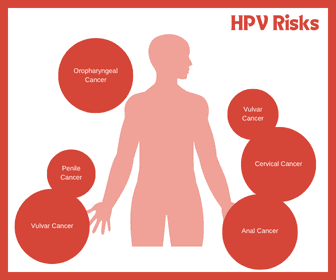Traveling abroad for study, work, or leisure is exciting, but ensuring your health is protected through vaccination is crucial. Diseases like Measles, Mumps, Rubella (MMR), Varicella (Chickenpox), Tdap (Tetanus, Diphtheria, Pertussis), Hepatitis B, Influenza, and Pneumococcal infections can have serious health impacts, especially in unfamiliar environments.
Many countries require proof of these vaccinations, particularly for student visas or long-term stays. Here’s a comprehensive guide on why these vaccines are vital and how they help you stay safe while exploring the world.
.jpg)
Why Vaccines Are Crucial for International Travelers?
Vaccines provide your first line of defense against preventable diseases that are common in many regions. International travel involves exposure to people from various areas, increasing the risk of infection. For students on crowded campuses or frequent travelers, staying up to date with immunizations is essential for overall health and safety.
1. MMR (Measles, Mumps, Rubella)
The MMR vaccine protects against three highly contagious diseases. For example, a measles outbreak occurred in 2019 across several European countries due to low vaccination coverage, affecting both locals and travelers. Many countries, especially in Europe and North America, require proof of MMR vaccination, especially for students and long-term visitors. Without it, you risk not only illness but also entry denial.
2. Varicella (Chickenpox)
Though commonly associated with childhood, chickenpox can have serious complications in adults. In one case, a young traveler contracted chickenpox during an overseas study program and had to be hospitalized for weeks. Communal living in dormitories or hostels increases the risk of such infections, so travelers should ensure they are vaccinated.
3. Tdap (Tetanus, Diphtheria, Pertussis)
Travelers risk exposure to tetanus in areas where healthcare facilities may be limited. Even a minor cut or injury can lead to a tetanus infection. Pertussis (whooping cough) and diphtheria are respiratory diseases that can spread easily in crowded environments, making this vaccine essential for anyone traveling internationally, especially to regions with poor vaccination coverage.
4. Hepatitis B
Hepatitis B is a serious liver infection transmitted through blood and bodily fluids. Long-term travelers, students, and those working in healthcare or close-contact environments are at higher risk. A notable case involved a healthcare student who, unvaccinated against Hepatitis B, contracted the virus during a medical internship abroad, resulting in lifelong health issues.
5. Influenza
Flu season differs across the world, but no matter your destination, protecting yourself against influenza is key. Travelers often encounter crowded spaces such as airports and buses, increasing the risk of contracting the flu. In 2018, several travelers were grounded and hospitalized in Asia during an influenza outbreak, missing their flights and adding unforeseen costs. An annual flu shot is a small but vital precaution.
6. Pneumococcal
The Pneumococcal vaccine protects against severe respiratory infections like pneumonia, which can be life-threatening, especially for older travelers or those with chronic health conditions. Though not required by many countries, it’s strongly recommended for at-risk individuals.
7. HPV (Human Papillomavirus)
As one of the most common sexually transmitted infections, HPV can lead to cancers later in life. The HPV vaccine is recommended for younger travelers, particularly students studying abroad, as it offers long-term protection and is part of many countries' vaccination programs for sexual health.

Timing Your Vaccinations Before Travel?
Proper planning is essential to ensure that vaccines are effective by the time of your trip. Some vaccines, like Hepatitis B, require multiple doses over a few weeks, so starting early is critical.
Plan Early:
Begin your vaccination process at least 4-6 weeks before your trip. Consult with a healthcare provider to determine which vaccines you need based on your destination, length of stay, and activities.
Vaccination Certification:
Some countries, especially for study or work visas, require specific vaccines such as MMR and Hepatitis B. Always carry your vaccination records with you to avoid issues at immigration.
At Dr. Vaccines, we provide travelers with the necessary vaccines and certifications, ensuring that your health is protected and your paperwork is in order. Our streamlined process helps you stay compliant with international health regulations.
Additional Health Tips for Travelers
Vaccination is only part of staying healthy while traveling. Here are additional steps you can take:
- Carry a Travel Medical Kit: Pack essential items such as pain relievers, antiseptics, and personal medications. At Dr. Vaccines, we offer customized medical kits tailored to your destination and health needs.
- Research Health Risks: Different countries have varying health challenges, from outbreaks to environmental concerns like poor sanitation. Always be aware of any health alerts before you travel.
- Stay Informed: Regularly check updates from health authorities like the World Health Organization (WHO) or Centers for Disease Control and Prevention (CDC) for any changes in vaccination recommendations or disease outbreaks.
- Consider Travel Health Insurance: Purchase insurance that covers medical emergencies, including hospitalization or medical evacuation, to avoid hefty out-of-pocket expenses abroad.
Preparing for international travel requires more than just booking tickets and packing bags—it’s about safeguarding your health and preventing potential risks. Essential vaccines like MMR, Varicella, Tdap, Hepatitis B, and others not only protect you from severe diseases but also ensure your journey goes smoothly.
By consulting with a healthcare professional or visiting a travel clinic such as Dr. Vaccines, you can ensure that you have all the necessary vaccinations and certifications to meet international travel requirements. Planning early, staying informed, and taking preventive health measures are key to a successful and enjoyable trip abroad.
Your time abroad should be spent exploring new cultures, building connections, and gaining life-changing experiences—not battling preventable illnesses. Stay healthy, stay protected, and make the most of your journey!

.jpg&w=3840&q=75)
.jpg)









